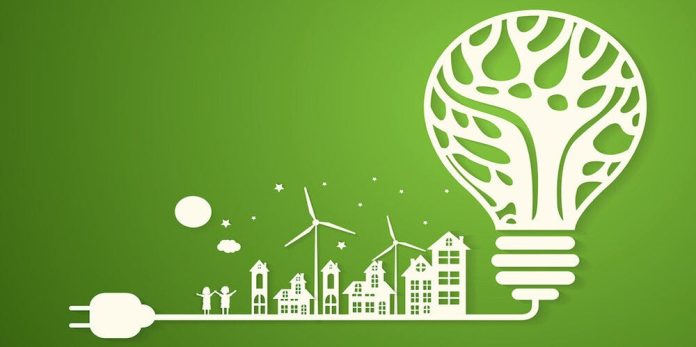The quest for energy efficiency is vital amidst concerns about climate change and soaring energy prices. By actively reducing energy consumption without compromising service quality, energy efficiency is achievable. Individuals, corporations, and governments can significantly diminish their environmental impact and save costs through the adoption of energy-efficient practices. This article explores several essential methods for improving energy efficiency, outlining their benefits and providing practical implementation advice.
The Role of Energy Audits in Energy Efficiency
Energy audits are fundamental to enhancing energy efficiency. These audits analyze the energy consumption of different buildings, businesses, or processes to identify inefficiencies. By pinpointing areas that can be improved – such as replacing machinery, streamlining processes, or modifying behaviours – energy audits are a vital tool for boosting efficiency.
The Impact of Energy-Efficient Equipment
Investing in energy-efficient equipment is a sure-fire way to reduce energy usage. Technological innovations have led to the development of energy-efficient industrial machinery, lighting, HVAC systems, and appliances. By replacing older equipment with these innovative solutions, energy costs can be reduced, and greenhouse gas emissions can be curbed.
Lighting Efficiency Measures: A Bright Idea
Lighting accounts for a significant portion of energy use in residential, commercial, and industrial settings. The adoption of lighting conservation techniques, such as replacing standard incandescent bulbs with energy-efficient LEDs, utilizing motion sensors or timers, and maximizing natural light, can result in substantial energy savings. Furthermore, creating awareness about the importance of turning off lights when not in use can help reduce energy consumption.
Enhancing the Building Envelope and Insulation for Energy Savings
Buildings can lose a lot of energy due to air leakage and ineffective insulation. By addressing air leaks, insulating walls, roofs, and floors, and installing double-glazed windows, energy efficiency can be improved. These steps not only increase the comfort level for occupants but also lower heating and cooling expenses.
HVAC System Optimization: A Cool Way to Save
In both residential and commercial buildings, heating, ventilation, and air conditioning (HVAC) systems are significant energy consumers. By conducting regular maintenance, upgrading to energy-efficient models, installing programmable thermostats, and using zone heating and cooling, energy consumption can be substantially reduced without compromising comfort.
The Advantages of Energy Management Systems (EMS)
Energy Management Systems (EMS) provide comprehensive control and monitoring capabilities, enabling users to track energy use, identify inefficiencies, and make data-driven decisions. Businesses and industries stand to benefit greatly from EMS, which can help them optimize energy use, pinpoint demand peaks, and implement demand response plans. Incorporating EMS into daily operations can drastically cut energy and cost expenditure.
Promoting Behavioral Changes for Energy Conservation
Encouraging energy-efficient behavior among residents and staff is a simple yet effective way to reduce consumption. Educating people about energy-saving techniques and fostering a culture of energy conservation can lead to significant savings. Positive changes can be further encouraged by rewarding energy-saving actions and offering regular feedback on energy usage.
The Benefits of Energy Efficiency
Energy efficiency is paramount for creating a sustainable and reliable future due to its critical role in reducing consumption and costs. Energy-efficient practices and technologies can enable individuals, corporations, and governments to achieve energy savings, lower electricity costs, and reduce their environmental impact.
Energy efficiency’s potential to mitigate climate change is one of its most significant benefits. By reducing energy use, we can decrease greenhouse gas emissions and combat global warming. Moreover, energy efficiency also has positive economic impacts. Businesses can slash operational expenses, enhance their competitiveness, and boost revenues by adopting energy-saving strategies and technologies.
For individuals, energy efficiency can translate into substantial utility bill savings. Simple modifications like using energy-efficient appliances, insulating homes, and switching to LED light bulbs can yield significant results. Additionally, energy-efficient buildings offer improved comfort and indoor air quality, enhancing the overall wellbeing of occupants.
The Role of Governments in Encouraging Energy Efficiency
To realize the full potential of energy efficiency, governments must implement enabling laws and regulations. These may include setting energy efficiency standards for buildings and appliances, offering incentives and financial support for retrofitting existing infrastructure, and promoting awareness through public engagement campaigns. Collaborative efforts between corporations, governments, and individuals are crucial to encourage widespread adoption of energy-efficient practices.
Energy efficiency provides benefits to the economy, the environment, and people. By adopting energy-efficient strategies and technologies, we can reduce energy use, mitigate climate change, and build a sustainable future. Consequently, energy efficiency must be prioritized as a cornerstone of our energy infrastructure as we strive to create a world that consumes less energy.
